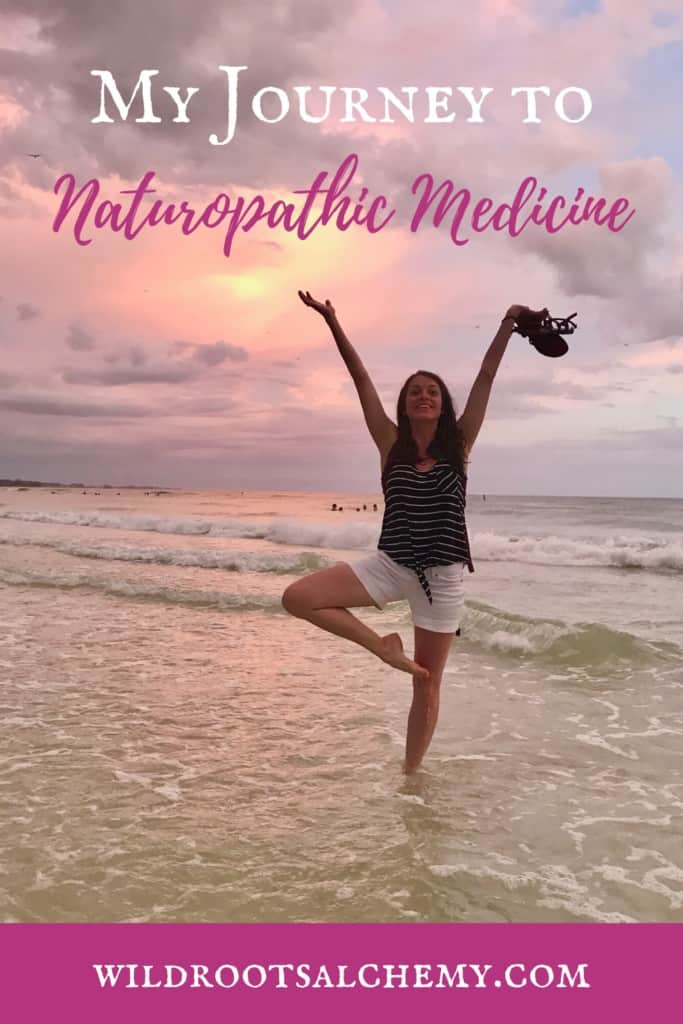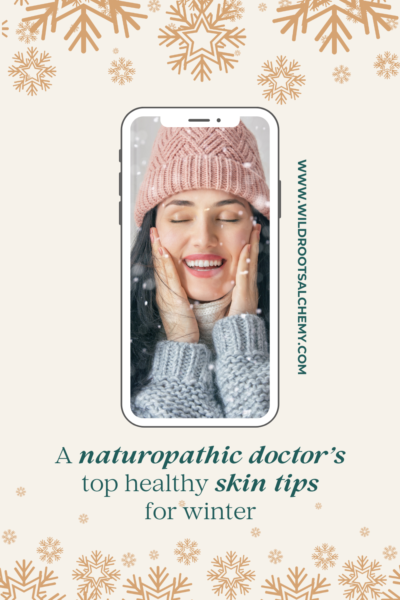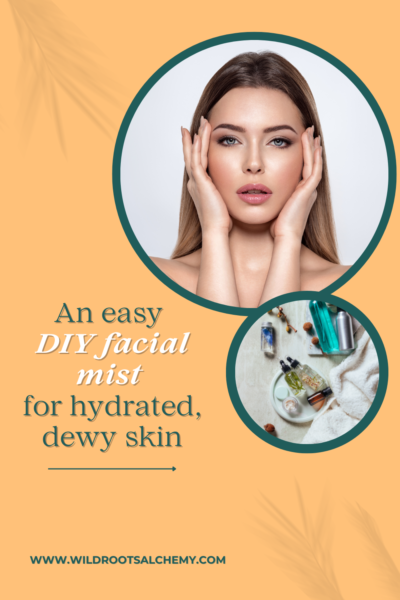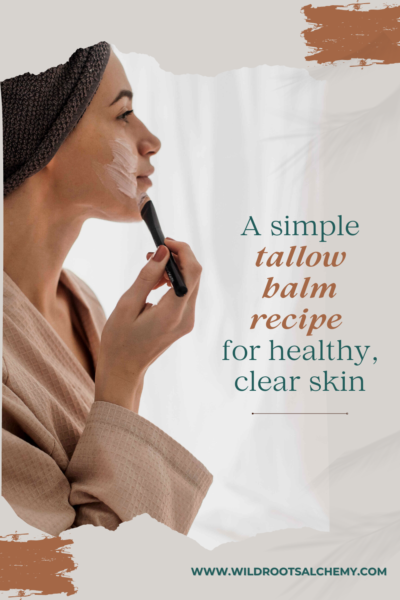
I’ve never really explained my own healing journey and how I decided to become a naturopathic doctor, so for this post, I thought I would venture into some personal territory and share some of my own experiences. I went back and forth for awhile about how much to share, but if I’m being honest with myself, I want to be a truly authentic practitioner—one who is real with my readers and clients, many of whom are also sharing intimate details of their own lives with me. So here I am, being authentic, open, honest, truthful, and a bit vulnerable.
It all started with the birth control pill…
When I was 17, I went on the birth control pill to manage heavy and irregular menses. I can pinpoint exactly to that time in my life when almost everything changed. Soon after starting the pill, I no longer felt like myself. I suddenly had dramatic mood swings, I felt anxious all the time with extreme panic attacks that seemingly came out of nowhere, and my life was full of an increasing number of days that felt like I was in a black hole of depression and despair (an over-used metaphor, I know, but that’s honestly what it felt like). At the time, I had no idea why I suddenly felt like this. Nothing in my life had changed—I hadn’t experienced a sudden significant trauma. In hindsight, I see now that what changed was my entire hormonal terrain, and my body wasn’t liking it.
Shortly after going on the pill, my anxiety and depression were so unbearable that I decided to see a psychiatrist who started me on (you guessed it) anti-depressants. If you’ve ever been on anti-depressants, you might know the side effects well: brain fog, a sense of numbness and apathy, lack of drive, insomnia, loss of desire for much of life’s pleasures. You may also be familiar with your prescribing provider offering a variety of different antidepressants over time, since many people don’t respond to certain antidepressants or feel worse on others, so they may be offered pill after pill until they find the one that is “just right.”
So I took pill after pill only to experience all the side effects without any benefits, but I kept taking them because that’s what I was told to do, just in case something might help relieve the terrible anxiety and depression that pervaded every minute of every day. Over the years, I was prescribed many different drugs, like Prozac, Zoloft, and Effexor. I remember with clarity the intense “brain zaps” from Paxil that momentarily stole my vision and sent electric-like shocks rocketing through my brain. I tried Lexapro, Celexa, and Abilify for the depression, and Xanax, Klonopin, Ativan, and Buspar for the anxiety. When SSRIs and similar drugs didn’t work, I was put on Seroquel, Lamictal, and Gabapentin.
Still nothing made me feel like myself, the self I knew before I started birth control. Every day I felt completely numb. The world was gray and lacked any sense of meaning. Despite feeling like my life and everything in it was dull and meaningless, I couldn’t muster up any motivation to care. So the drugs were working, right?
A conversation that changed my life
One day a close friend asked me how long I was going to stay on the medications. I honestly hadn’t thought about it. So I said, “Probably for the rest of my life, because that’s what my doctor said. I was told that I have a chemical imbalance in my brain and I’ll need these drugs forever.” That friend—who noticed my deep emotional numbness—then told me about a documentary called “Making a Killing: The Untold Story of Psychotropic Drugging” that changed my life forever.
During this time, I was also introduced to herbal medicine. I started working with kava and realized it was more helpful for my anxiety than any of my meds. I started reading about nutrition and lifestyle and how those impact our health. I thought, if herbs and other natural therapies can help my mood, why can’t I just use those instead of the drugs? (To be clear, it’s not always that simple, but this was my thinking at the time.)
Spurred by my newfound knowledge and what I saw in the documentary, I decided I wanted off of all of my pharmaceuticals. I was studying microbiology and working in a lab at the time, and was on the path to go to graduate school for immunology (I really wanted to work in a lab and do medical research, because the world of little microbes is SO FASCINATING!). Being the scientist-in-training that I was, I knew I needed to work with a provider to get off of my medications and that I shouldn’t go off of any of them cold turkey. (**PLEASE never go off of any meds cold turkey! Always work with your prescribing provider!**)
So I told my psychiatrist that I no longer wished to be on my medications. I was met with a lot of resistance, but ultimately she said she would help me taper off of them over the span of a few months. At the same time, my friend had suggested that I see a naturopathic doctor (ND) to help with my symptoms, so I started working with an ND while I tapered off of my pharmaceutical drugs.
Discontinuing all the meds
The first thing I discontinued was my birth control pill. Let me tell you, it was like a veil was lifted soon after stopping the pill. I realized that my mood was largely impacted by that little tiny oral contraceptive and the relief I felt after stopping it was immense. The mood medications took several months to discontinue and resulted in a number of withdrawal side effects for months afterwards that I won’t go into here (but just know you’re not alone if you have found it challenging to taper off of your psychotropic medications).
Shortly after stopping the pill, I experienced a severe acne break-out. I had experienced a pimple every now and then throughout my young life, but this was such a shock. I remember that it was such a sudden and drastic change: I felt like I went to bed with healthy skin one night and woke up the next day with a red face full of acne. It got worse as the days went by as my body tried its best to detoxify the years of medications and restore hormonal balance. I worked with my naturopathic doctor and got some relief, but my skin was the last to heal. As we know all too well in naturopathic medicine, the skin is a mirror of the internal state and will heal once everything else has been restored to balance. Side note: Persistent and severe acne is a common symptom after getting off hormonal birth control. Be on the look-out for a future post all about post-birth control symptoms and what to do about them!
I remember the day that I finally tapered off of all of my psychotropic pharmaceuticals. I had been nervous to do so as I was in a number of challenging undergraduate courses and I was worried my mood would be all over the place and make it difficult to focus on school.
Yet I had the exact opposite experience: despite the many withdrawal effects to tapering off of the medications (immense fatigue, body pains, my brain constantly feeling like it was on fire, etc.), my mood was better than it had been in years. I felt optimistic, hopeful, and excited about the future. The numbness and apathy were gone. As my body restored hormonal and neurotransmitter balance, and diligently detoxified the many pharmaceuticals I’d ingested over the span of several years, my body was healing herself. I supported my healing with naturopathic therapies, but my amazing, magnificent, incredibly intelligent body was doing all the work she needed to do. It just took some time.
Soon after getting off of my medications, I realized that I no longer wanted to participate in research for a field of medicine that hadn’t truly addressed the root cause of my issues and whose only tools were pharmaceutical drugs that left me with a host of adverse effects. So instead, I applied to naturopathic medical school and now I’m in my third year of practice as a naturopathic doctor.
So I get it.
I know exactly what it’s like to not feel heard by your medical provider, to feel like they are just throwing pills at your symptoms without addressing exactly WHY you have those symptoms in the first place. I know what it’s like to go on a medication and experience a host of adverse effects of which you were never fully informed. If I had been told what the birth control pill was going to do to me, I would never have agreed to go on it. I probably would have also avoided years of heavy psychotropic medications. Yet if I hadn’t had those experiences, I likely wouldn’t have made it on this path of holistic healing. Everything is ultimately for a reason, right? 🙂
A few words on mental health
n 2017, there were approximately 46.6 million adults in the U.S. with symptoms of a mental health disorder, many of them medicated. Depression and anxiety are the two most common mental health diagnoses, and the numbers keep climbing.
There is an exorbitant amount of widespread stigma around mental health conditions. Even within the medical field, there is stigma and discrimination around practitioners with a previous history of mental health diagnoses. This stigma can create a sense of shame and isolation in those affected. That is why I’m talking openly about my own health history in an attempt to bring awareness to the ever-growing epidemic of mental health conditions.
There are so many reasons for mental health disorders and I can’t possibly get into them all here, but I’ll touch on a few key concepts. Often, the root cause can be traced back to a trauma, grief, or a significant life change. Mood changes can also be caused by a pharmaceutical drug (commonly hormonal birth control), as in my case.
Anxiety and depression could also be seen as a disconnect from ourselves and our community; a result of loneliness and lack of true connection. As a collective, humankind is rapidly losing touch with our innate spiritual and emotional nature. We are forgetting our connection to each other and to our Earth, stripping our lives of spiritual meaning and forcing us to exist as isolated individuals rather than as a cooperative, thriving community.
For us to truly heal from mental and emotional illness, we must first address the societal conditioning that has separated us from our true nature. To do this, we must individually and collectively reawaken to our inherent connection to our spirit, one another, and our planet.
But what about brain chemistry?
Changes in brain chemistry can surely lead to mood disorders, but there is often an underlying cause that triggered the mood symptoms and the neurochemical changes are the resulting reaction from the body. Medications that affect brain chemistry may help short-term (and most were actually intended to only be used short-term), but they are not addressing the root cause.
Fact: Medications have their place and every person is different
With all this being said, there are a few things that I want to emphasize. For one, I fully recognize the value of all medical approaches and the incredibly important role that conventional medicine plays in our healthcare system. However, I believe that we too often utilize invasive, suppressive, or toxic therapies—therapies that are known to create negative effects and can sometimes do more harm than good—for conditions that could benefit from more gentle and equally effective therapies. Every individual person is different and what might work for one person may not work for another. This is where truly holistic medicine comes into play.
Another thing I would like to make very clear: I absolutely recognize that everyone has a different experience on these pharmaceutical medications. For some, they are necessary for a certain period of time, indefinitely in some cases. The benefits CAN outweigh the risks. However, that was not the case for me and it’s not the case for many others who are not fully informed by their medical providers. True informed consent allows people to make the choice for themselves: once they’ve been informed of the possible risks of treatment, they can decide if the benefits outweigh the risks for them as an individual—an individual with a unique health history, health constitution, and belief system. Informed consent also includes the discussion of alternatives, which are often not readily discussed in most healthcare settings. Alternatives can and do include “alternative” or naturopathic medicine, such as utilizing nutrition, lifestyle changes, and herbal medicine to address such issues as hormonal imbalances, heavy menses, and mood dysregulation.
I also want to re-emphasize that if you are currently on any medications (psychotropic, birth control, or otherwise), please do not discontinue or taper off of your medications without first discussing it with your prescribing provider. If you and your provider both agree that discontinuing your medications is right for you, it can be helpful to have a holistic provider on board to help support you during this process.
If you feel like you would like support along your healing journey, please visit my website at boulder.wshcare.org and make an appointment for a complimentary 15-minute discovery call to see if we would be a good fit. I look forward to working with you!





